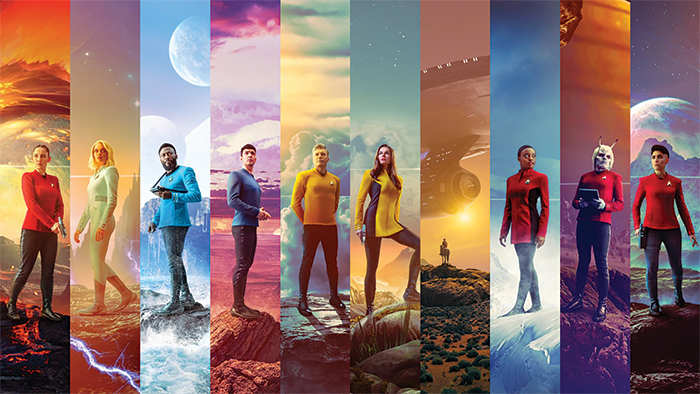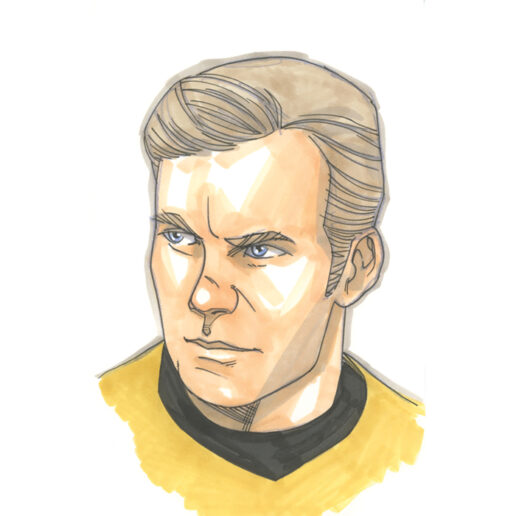This month, “Star Trek” fans across the globe will celebrate the groundbreaking legacy of the iconic TV series that boldly went where no show had gone before.
On September 8, 1966, a new and daring show called “Star Trek” made its debut on American screens. Created by the visionary Gene Roddenberry, the show was set in the 23rd century and followed the crew of the USS Starship Enterprise as they journeyed through the final frontier of outer space. What began as a modest sci-fi series quickly turned into a cultural phenomenon, gaining a passionate following of “Trekkies” who remain loyal to this day.
One of the show’s most revolutionary aspects was its diverse and groundbreaking cast, which featured a mix of races, nationalities and species. At a time when television tended to be less inclusive, the original Enterprise crew stood out: at the helm was Captain
James T. Kirk (William Shatner), accompanied by his super-logical and iconic First Officer/Science Officer, Spock (Leonard Nimoy). The team also included Dr. Leonard “Bones” McCoy (DeForest Kelly), the spirited Chief Medical Officer; Hikaru Sulu (George Takei), the skilled Helmsman; Nyota Uhura (Nichelle Nichols), the Communications Officer who inspired generations; Pavel Chekov (Walter Koenig), the young Russian Navigator; and Montgomery “Scotty” Scott (James Doohan), the beloved Chief Engineer. Together, they formed a crew as dynamic and diverse as the universe they explored.

“Space: the final frontier. These are the voyages of the Starship Enterprise. Its five-year mission: to explore strange new worlds, to seek out new life and new civilizations, to boldly go where no man has gone before.”
Though “Star Trek” was an adventure series, its real power lay in its deep themes. It wasn’t just about battling aliens or discovering new planets – it was about exploring big ideas like peace, cooperation and morality. The show used its futuristic setting to reflect on contemporary social issues, advocating for peaceful solutions and a united humanity.
The “Star Trek” universe has since expanded into five additional TV series: “The Next Generation,” “Deep Space Nine,” “Voyager,” “Enterprise” and “Discovery.” There has also been an animated series, along with a collection of feature films that keep the legacy alive.
HOW TO CELEBRATE:
- Watch the original “Star Trek” pilot series.
- Host a “Star Trek” Marathon with your friends and family.
- Introduce “Star Trek” to a new generation.
- Post your “Star Trek” moments on social media and tag #StarTrekDay.
One of the most visible signs of “Star Trek’s” enduring impact is the fan conventions, where devotees gather annually to meet their favorite stars, engage with production staff and exchange “Trek-related” collectibles. From autograph signings to enthusiastic panel discussions, these conventions are a testament to the lasting love for the series.

Each “Star Trek” episode began with the opening credits narration by William Shatner.
Gene Roddenberry’s vision of a universe filled with diversity, acceptance and hope was ahead of its time, yet it still resonates in today’s world. Although “Star Trek” may have started as a fictional adventure, it has become a symbol of humanity’s potential for a brighter, more inclusive future – both here on Earth and among the stars.














